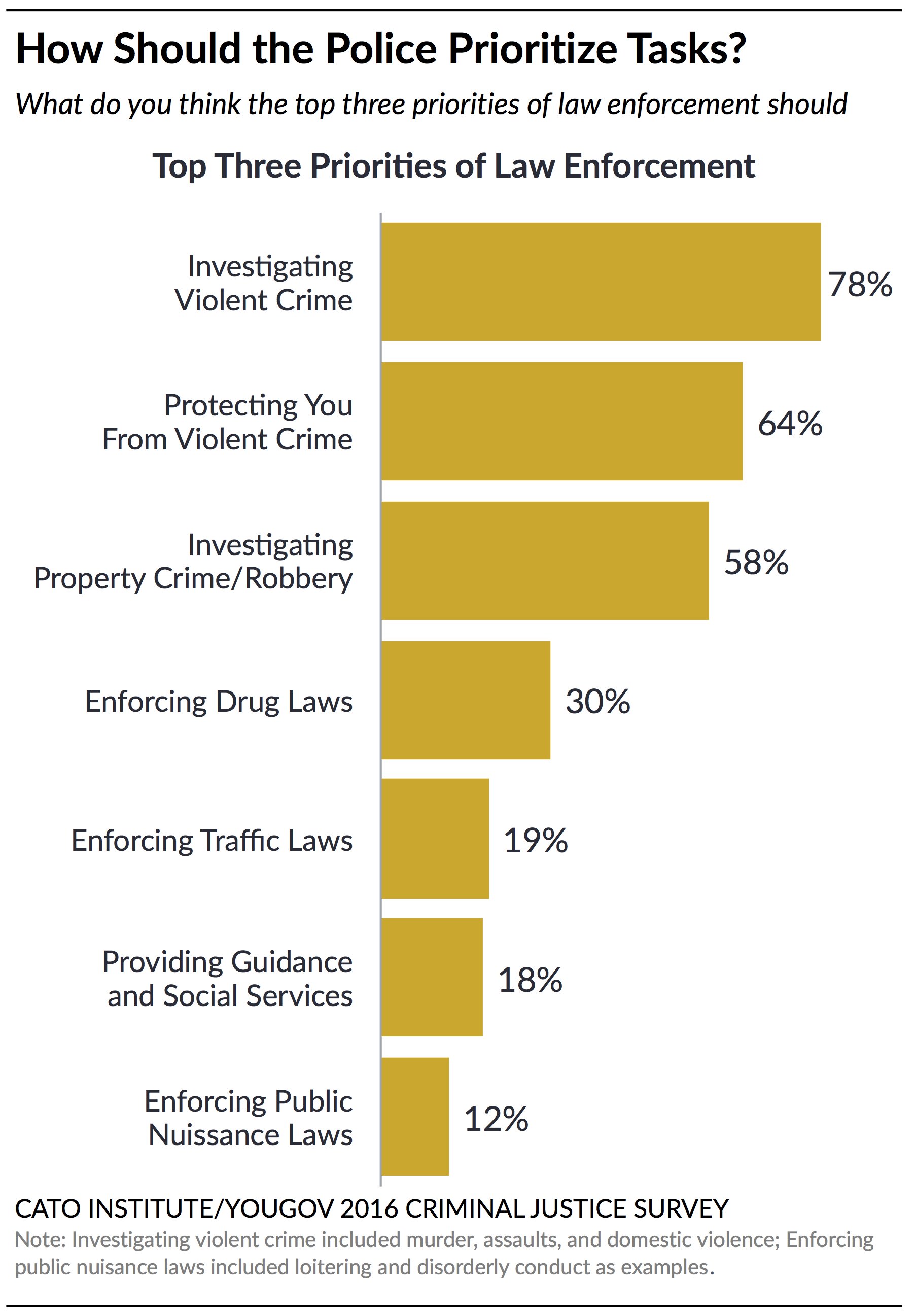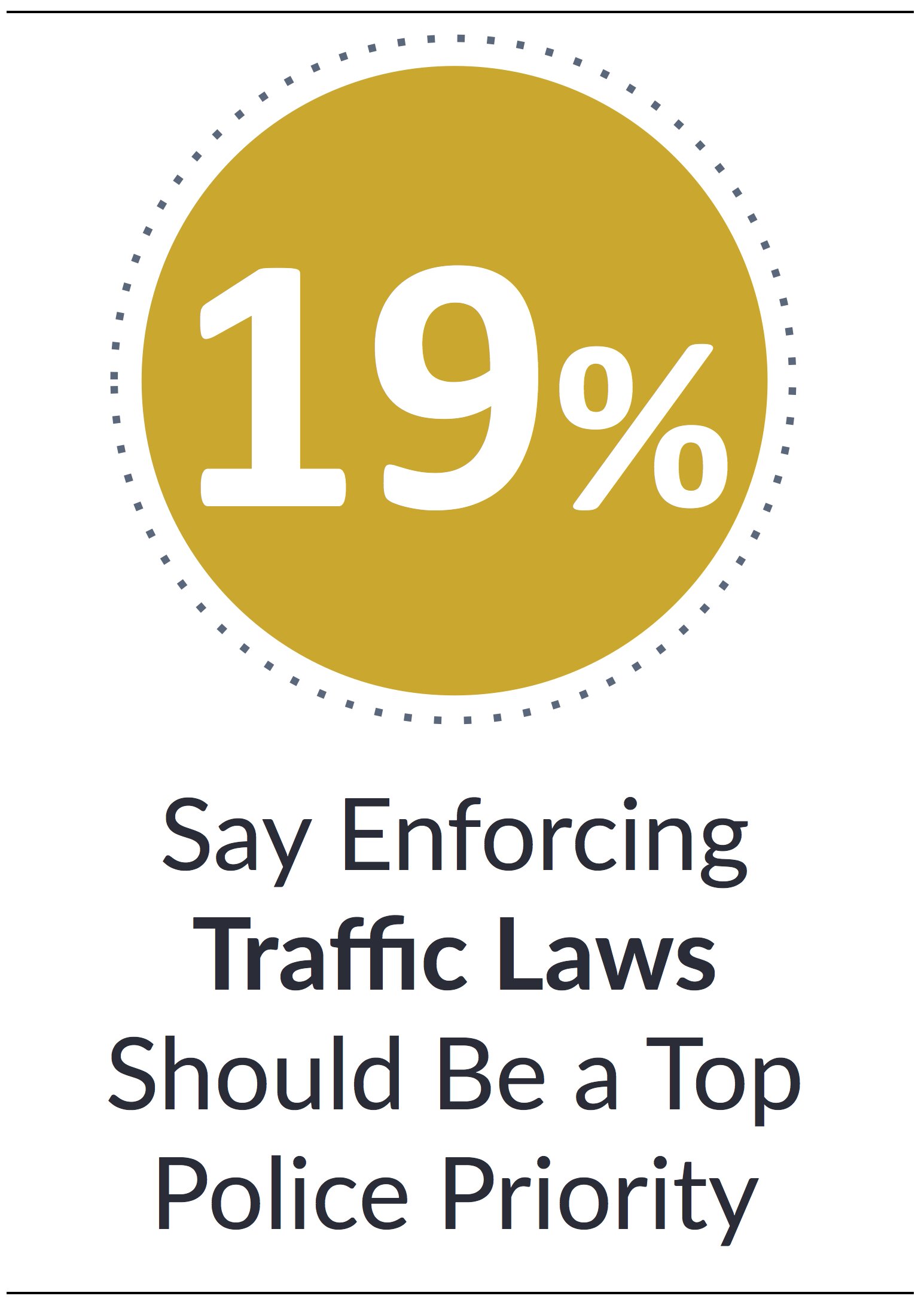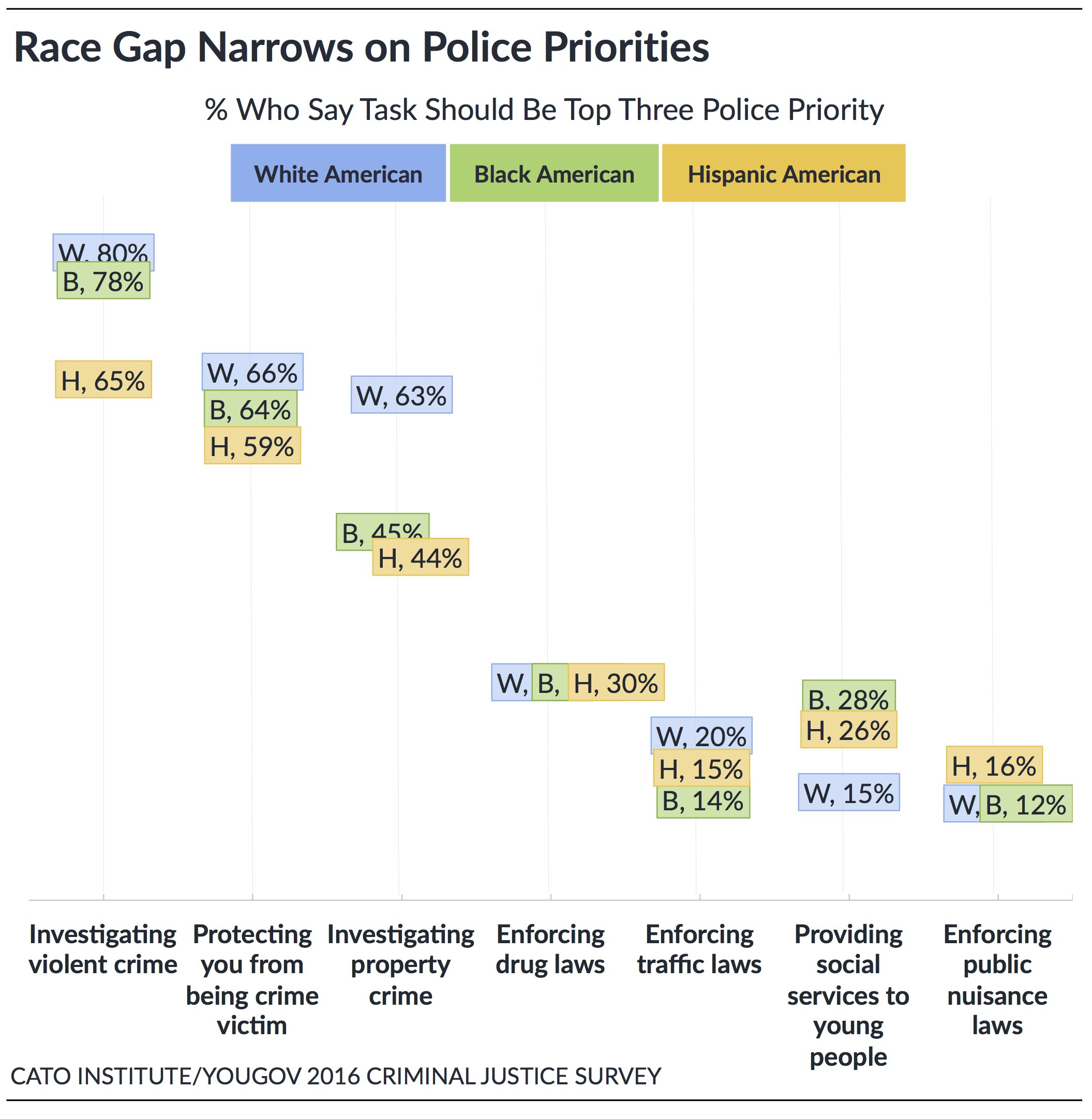Police officers have limited time and resources and thus must decide how to prioritize their duties. Americans generally agree on the top three priorities for law enforcement: first, investigating violent crime like murder, assaults, and domestic violence (78%), second, protecting individuals from violent crime (64%), and third investigating property crime and robbery (58%).
A little under a third (30%) think police should make enforcing drug laws a top three priority.
Notably, only 19% say police should make enforcing traffic laws a top priority. In other words, Americans de-prioritize the task leading to the most common interaction individuals have with the police — receiving a traffic ticket.24
Another 18% think police should prioritize going beyond traditional law enforcement responsibilities by "providing guidance and social services to troubled young adults." And another 12% say police enforcing public nuisance laws is most important.
Black, white, and Hispanic Americans prioritize the same top three tasks for law enforcement; however, groups differ in intensity of support. Perhaps most strikingly, African Americans and Hispanics (45%) are 18 points less likely than white Americans (63%) to prioritize the police investigating property crime and robbery. (Although this difference largely dissipates among individuals above the median income). African Americans and Latinos (27%) are also about twice as likely as Caucasians (15%) to say the police should prioritize "providing guidance and social services to troubled young adults."
Despite these modest differences, Americans across partisanship and demographics generally have similar priorities in mind for law enforcement. In addition, beliefs about police priorities don't vary with favorability toward the police and thus likely have little impact on attitudes toward law enforcement.
Notes:
24 Christine Eith and Matthew R. Durose, Contacts between Police and the Public, 2008, edited by Bureau of Justice Statistics (Washington, D.C.: U.S. Department of Justice, 2011), https://www.bjs.gov/content/pub/pdf/cpp08.pdf.


